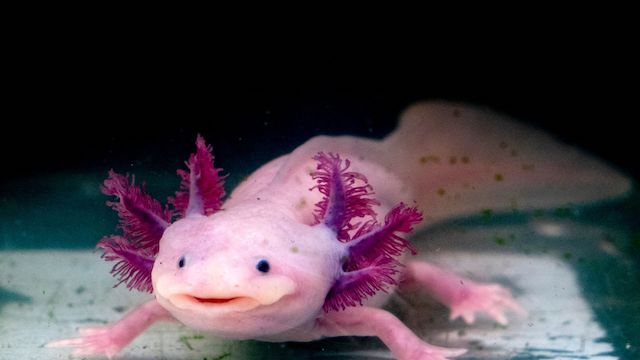Axolotls, the intriguing aquatic creatures native to the Xochimilco canals in Mexico, have fascinated scientists and enthusiasts for centuries. These unique creatures possess regenerative abilities and retain juvenile features throughout their lives. As a result, axolotls have become popular pets and research subjects worldwide.
Let’s dive into the fascinating world of axolotls to unravel the mystery surrounding their lifespan. How long do axolotls live? Let’s explore the factors that influence their longevity and gain a deeper understanding of their extraordinary existence.
Overview of Axolotls
Before delving into their lifespan, it’s essential to familiarize ourselves with the unique characteristics of axolotls. Scientifically known as Ambystoma mexicanum, axolotls are a type of salamander belonging to Ambystomatidae family. They are indigenous to the ancient lakes of Xochimilco and Chalco in Mexico.
Axolotls are known for their neotenic features, which means they retain their juvenile characteristics even into adulthood. Unlike other amphibians, axolotls do not undergo metamorphosis, remaining permanently aquatic throughout their lives. They have external gills, feathery external structures that allow them to breathe underwater, and a long, finned tail that aids in propulsion.
Factors Affecting Lifespan
Several factors contribute to the lifespan of axolotls. While there is considerable variability, axolotls typically live between 10 and 15 years in captivity. However, with proper care and optimal conditions, some axolotls have been known to live beyond 20 years.
Genetic Factors
Genetic makeup plays a crucial role in determining an axolotl’s lifespan. Like any living organism, axolotls inherit certain traits and susceptibilities from their parents. Some axolotl lines may exhibit stronger genetic traits for longevity, while others may be more prone to health issues that can shorten their lifespan.
Environmental Factors
The conditions in which axolotls are kept significantly influence their lifespan. Water quality, temperature, pH levels, and the overall cleanliness of the tank or habitat are essential factors to consider.
Axolotls thrive in cooler water temperatures, ideally around 60-68°F (15-20°C), and require ample space to swim and hide. High-quality filtration systems and regular water changes are vital for maintaining optimal water conditions.
Diet and Nutrition
Proper nutrition plays a significant role in the health and longevity of axolotls. A well-balanced diet consists of a variety of live or frozen foods, such as bloodworms, brine shrimp, daphnia, and small pieces of fish.
Overfeeding can lead to obesity, which can shorten their lifespan, so it’s essential to feed them appropriate amounts and adjust their diet as they grow.
Regeneration and Longevity
One of the most fascinating aspects of axolotls is their extraordinary regenerative abilities. They have the remarkable capability to regenerate lost limbs, spinal cord, heart tissue, and even parts of their brain. This regenerative capacity may contribute to their potential for extended lifespans.
Scientists are actively studying axolotls to understand the mechanisms behind their remarkable regenerative abilities. By uncovering the secrets of their regenerative process, researchers hope to gain insights into potential applications for human medicine, such as tissue regeneration and wound healing.
Axolotls in Captivity
Axolotls have gained popularity as unique and captivating pets. When kept in captivity, their lifespan can be influenced by factors beyond their natural habitat. Adequate housing, a nutritious diet, and regular veterinary care are essential to ensure their well-being and longevity.
Axolotls are susceptible to various health conditions, including fungal infections, bacterial infections, and metabolic disorders. Monitoring their behavior, ensuring proper water quality, and promptly addressing any signs of illness are vital for their long-term health.
How Long Axolotls Live: Final Thoughts
The lifespan of axolotls is influenced by a combination of genetic factors, environmental conditions, and proper care. While they typically live between 10 and 15 years in captivity, optimal conditions and diligent care can extend their lifespan beyond two decades.
Axolotls continue to captivate researchers and pet enthusiasts alike, not only for their longevity but also for their regenerative abilities and unique characteristics.
As we continue to uncover the secrets behind these intriguing creatures, the fascinating world of axolotls will undoubtedly provide us with further insights into their extraordinary existence.

